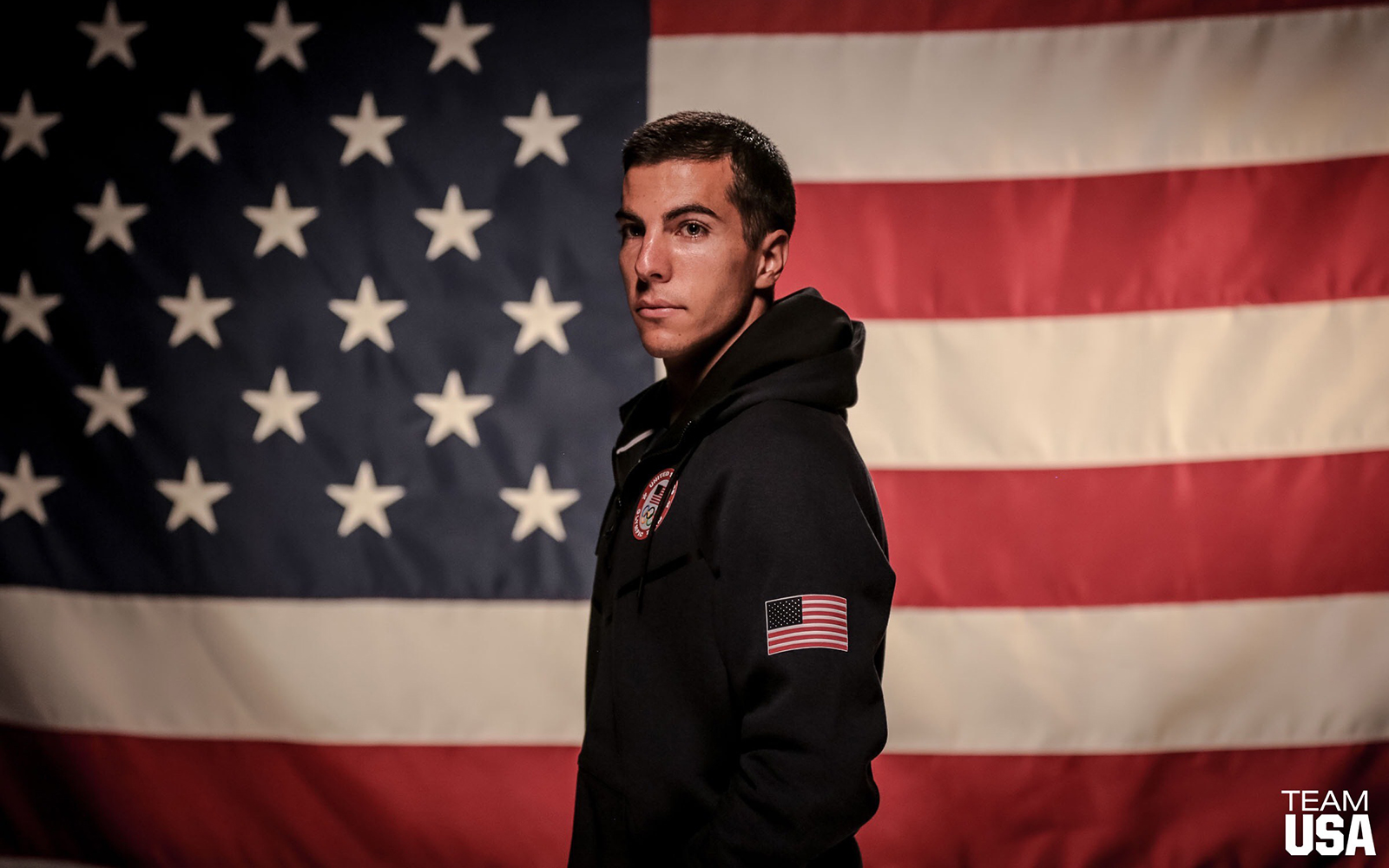
The day before he ran the 2018 Hartford Half Marathon, Donn Cabral attended a seminar called “A Lawyer’s Primer on Blockchain.” After he won the race, he headed home to tackle a take-home exam for a course called “Motivating Individuals and Teams.”
Life is like that when you’re simultaneously pursuing a law degree, a master’s of business administration degree, and a spot in your third Olympics. Fortunately, running competitively has taught Cabral to thrive on stress.
“When some of the best moments of your life are preceded by weeks and months of anxiety, you start associating that anxiety with good outcomes,” he says. “I’ve learned to love being nervous.”
Cabral enrolled at UConn in 2017 as a dual-degree candidate in the School of Law and School of Business. UConn offers both degrees in three years, instead of the four years it would take to obtain them separately. Cabral is planning to complete them in three and a half years to leave himself time to train for the Olympic trials.
“His dual degree is another testament to how hard Donnie is willing to push himself,” says Ryan Baldassario, administrator of UConn’s full-time master’s of business administration program and Cabral’s adviser.
After spending his first year taking courses at the UConn Law campus, Cabral is spending most of his second year at the UConn Hartford Campus downtown taking his business courses. In between, he had a summer internship with the Office of the Connecticut Attorney General.
Running has been a constant in Cabral’s life since he joined the track team in high school in his hometown of Glastonbury, Connecticut. After winning several titles at Glastonbury High School, he enrolled at Princeton, where he was an All-American runner in several events. In 2012, he was the NCAA steeplechase champion.
Immediately after graduating with a bachelor’s in economics, Cabral qualified for the 2012 U.S. Olympic team in the steeplechase. Afterward he began to run professionally, and he qualified again for the Olympics in the steeplechase in 2016.
His professional running career has taken him around the world and provided some unique opportunities. At the 2016 Olympics in Rio de Janeiro, his facility with languages provided an opportunity to meet a celebrity gymnast.
“My Portuguese was good and Simone Biles needed something translated,” he says, “so I helped her.”
In the summer of 2018, he was signed to make a commercial for KFC that involved jumping hurdles with a bucket on his head. “It was a very silly thing,” he says. “They had me wearing a wrestling leotard, like they didn’t even know what runners wear.” He brought his Olympics outfit to wear instead.
These days, Cabral might typically run five miles in the morning and seven or eight miles after his internship work or classes. He now lives with three other runners, including Nick Blanchard, a second-year law student at UConn. Sometimes he and Blanchard run together, and Cabral believes that being part of a community of runners has been crucial to his success at UConn.
While he has his eye on the 2020 Olympics and continues to compete, Cabral is also preparing for the next stage of his life. At the age of 28, he doesn’t expect to continue a professional running career much longer. Looking to his future, the dual degree just made sense. He had always been interested in business and law – his mother is an attorney – and UConn is a place where he feels comfortable and could be close to his hometown of Glastonbury.
Because he had been out of school for so long, Cabral says, he had expected the pressure of law school to feel particularly intense. Instead, he found himself eager and excited. Accustomed to the stress of athletic competition, he was undaunted at the prospect of being cold-called to answer a question in class.
Still, he notes, the first year of law school is difficult for everyone, and he spent seemingly endless hours in class, reading and studying to stay on top of his work.
But he doesn’t believe his particularly hectic schedule made much difference. “The first year is just grueling and hard no matter what,” he says. “I don’t think it would have been much easier if I wasn’t running.”
And despite the heavy workload and intense training ahead, he feels sure he’s on the right path. “I feel like I am where I am supposed to be,” he says. “This next semester is going to be a really good one.”
While he’s not yet sure exactly what he wants to do after law school, Cabral says he’s excited about the options a dual degree will provide. His adviser is also optimistic. “The flexibility these degrees give Donnie going forward will really complement his ability to work with all different kinds of people,” says Baldassario.
Wherever the next step takes him, Cabral is not reluctant to move on.
“I’ve basically spent my whole life as an athlete, and athletes are very selfish,” he says. “I guess I’m just ready to fully contribute to society. It’s going to feel really good.”